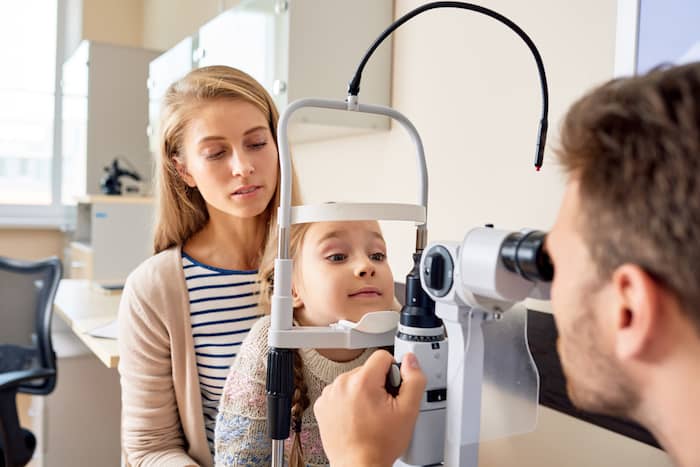
Your vision is precious because it’s your window to the beautiful world, allowing you to see the magnificent natural landscapes, stunning human-made landmarks, and, most of all, the people you love. That’s why caring for your eyes is a must, especially in the digital age, wherein people are prone to digital eye strain.
In this post, you’ll learn the important reasons why you have to visit an eye doctor in Fort Myers. Moreover, you’ll find out the benefits you can get and problems you can prevent by visiting an eye doctor.
1. Diagnose Eye Problems Early
Early diagnosis of vision problems is a must. It’s because serious eye conditions, like macular degeneration and glaucoma, can lead to blindness, and are not diagnosed early. If you live in Fort Myers, Florida, it’s worth visiting a trusted eye doctor, like one from Quigley Eye, so your vision will be checked by an experienced eye professional.
Here are the common eye disorders that an optometrist can diagnose during an eye checkup:
- Nearsightedness or Myopia: It’s an eye disorder in which a person sees close objects clearly and farther objects as blurry. Nearsightedness can cause headaches, difficulty driving at night, and frequent squinting or closing eyelids to see clearly.
- Farsightedness or Hyperopia: This common eye problem is the reverse of nearsightedness, in which a person sees far away objects clearly, while closer objects appear blurry. It usually requires wearing reading glasses.
- Astigmatism: Distorted vision, eye strain, headache, and reading discomfort are some of the symptoms of astigmatism. The eye doctor can suggest doing LASIK to permanently correct astigmatism.
2. Detect Serious Eye Problems
According to the Centers for Disease Control and Prevention, about 3.3 million Americans have poor vision or are legally blind, due to glaucoma, cataract, diabetic retinopathy, and age-related macular degeneration. Regular eye checkups every year are highly recommended to prevent serious complications, like irreversible blindness.
Here are some examples of serious eye problems that an eye doctor can detect during a comprehensive eye exam:
- Macular Degeneration: It’s an eye condition that usually occurs with age, which affects the macula or central portion of the retina, resulting in central and sharp vision. The early symptom includes wavy, straight lines due to leaking, bleeding, or scarring of blood vessels of the retina. When not treated, macular degeneration can lead to a rapid central loss of vision.
- Cataract: It’s considered as the leading cause of irreversible blindness worldwide, which occurs at any age. The lens of the eyes becomes cloudy. Early symptoms include sensitivity to light and poor vision at night. Frequent changes in your prescription glasses are also another sign of cataract. An eye doctor can diagnose cataracts by checking your eye lens up close.
- Diabetic Retinopathy: One complication of diabetes is diabetic retinopathy, wherein the retina’s blood vessels experience progressive damage, which commonly affects both eyes. Reduce the risk of blindness through early diagnosis by regularly visiting an optometrist.
- Glaucoma: This eye condition involves damage to the optic nerve, which can result in blindness. The normal fluid in the eyes causes increased pressure, and vision loss usually happens in advanced stages. That’s why visiting an eye doctor regularly must be taken seriously.

3. Get the Right Prescription Glasses
An optometrist is an expert when it comes to recommending prescription glasses. The important things you have to consider when choosing prescription glasses include the type of lens, proper fitting, the shape of your face, and your personal style.
Aside from making eyeglass prescriptions, here are other ways an optometrist can help you get the right glasses:
- Prescribing the Correct Lens Type: Your optometrist will prescribe the type of glasses that suits your needs.
There are many types of eye lenses, such as the following:
- Polycarbonate – a great choice for athletes or those who play sports or perform rough activities wherein the eyeglasses could get damaged.
- Trivex – a newer plastic, and it’s lightweight, impact-resistant, and thin.
- High-Index Plastic – For those who would require strong prescription glasses, high-index plastic is thinner and lighter than old-school thick eyeglasses.
- Polarized Sunglasses – reduce glare, making these glasses perfect for driving and sports.
- Photochromic Eyeglasses – can change from clear to tinted when there’s sunlight, so you no longer need to ear separate sunglasses when outside during a hot summer day.
- Promote Eye Health Education: An optometrist is the best person who can provide you advice about proper eye care. There are many myths about eye care, such as the belief that reading a book under dim light or sleeping when your hair is wet can cause blindness. Your eye doctor will shed clarification on myths concerning vision and guide you on how to properly care for your eyes.
Conclusion
Visiting an eye doctor will give you peace of mind, knowing that you have a healthy vision. Early eye problems will be detected using sophisticated machines and devices. Also, it will save you a lot of money from the cost of medications, surgical treatments, and complications brought about by serious eye disorders.
Throughout the year, our writers feature fresh, in-depth, and relevant information for our audience of 40,000+ healthcare leaders and professionals. As a healthcare business publication, we cover and cherish our relationship with the entire health care industry including administrators, nurses, physicians, physical therapists, pharmacists, and more. We cover a broad spectrum from hospitals to medical offices to outpatient services to eye surgery centers to university settings. We focus on rehabilitation, nursing homes, home care, hospice as well as men’s health, women’s heath, and pediatrics.







